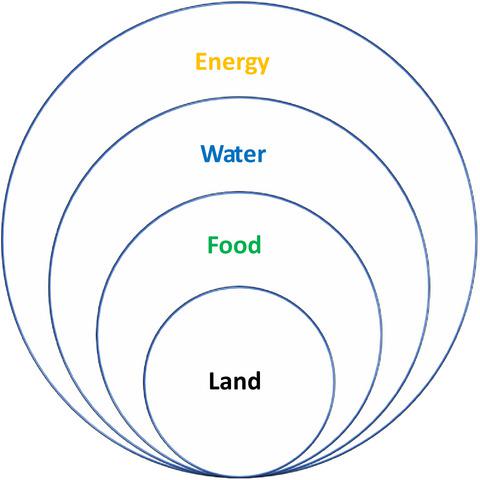当前位置:
X-MOL 学术
›
Food Energy Secur.
›
论文详情
Our official English website, www.x-mol.net, welcomes your feedback! (Note: you will need to create a separate account there.)
An impact analysis of population growth on energy‐water‐food‐land nexus for ecological sustainable development in Rwanda
Food and Energy Security ( IF 5 ) Pub Date : 2019-10-16 , DOI: 10.1002/fes3.185 Katundu Imasiku 1 , Etienne Ntagwirumugara 1
Food and Energy Security ( IF 5 ) Pub Date : 2019-10-16 , DOI: 10.1002/fes3.185 Katundu Imasiku 1 , Etienne Ntagwirumugara 1
Affiliation

|
While agricultural activities are a major drain on water resources in Rwanda, its high population growth continually escalates energy–water–food–land nexus pressures. With 13.03 million inhabitants on a 26,336 km2 area which translates to be 495 inhabitants per km2, Rwanda has the second‐highest population density in Africa because of its high annual population growth rate of 2.95%. Access to clean drinking water, energy, and food to meet the demographic needs in Rwanda are fundamental, but this is unlikely to be the case by 2050 due to the anticipated land scarcity. Land stress is endangering energy, water, and food security, and this works against ecological sustainable development. This research analyzed the ecological balance of human activities in Rwanda and how policymakers have increasingly emphasized on energy–water–food nexus sectors separately without integrating land usage and population growth which poses an even more critical situation if left unattended to. The research study recommends the Multi‐Scale Integrated Analysis of Societal and Ecosystem Metabolism (MuSIASEM) method as being appropriate to support the transition toward a sustainable economy because it is used to optimize resources, generate focused decisions, actions, investments, and policies that would combat nexus pressures and promote ecological sustainable development.
中文翻译:

人口增长对卢旺达能源,水,食物,土地之间的联系以实现生态可持续发展的影响
尽管农业活动是卢旺达水资源的主要消耗,但其高人口增长持续加剧了能源,水,食物,土地之间的联系压力。在26,336 km 2的面积上有1,303万居民,每平方公里2意味着495居民卢旺达的人口年增长率高达2.95%,因此在非洲人口密度排名第二。满足卢旺达人口需求的清洁饮用水,能源和食物的获取至关重要,但由于预计土地短缺,到2050年这种情况不太可能发生。土地压力正在威胁能源,水和粮食安全,这不利于生态可持续发展。这项研究分析了卢旺达人类活动的生态平衡,以及政策制定者如何在不将土地利用和人口增长结合在一起的情况下,越来越单独地强调能源,水,食物关系部门,如果不加注意的话,情况将更加严峻。
更新日期:2019-10-16
中文翻译:

人口增长对卢旺达能源,水,食物,土地之间的联系以实现生态可持续发展的影响
尽管农业活动是卢旺达水资源的主要消耗,但其高人口增长持续加剧了能源,水,食物,土地之间的联系压力。在26,336 km 2的面积上有1,303万居民,每平方公里2意味着495居民卢旺达的人口年增长率高达2.95%,因此在非洲人口密度排名第二。满足卢旺达人口需求的清洁饮用水,能源和食物的获取至关重要,但由于预计土地短缺,到2050年这种情况不太可能发生。土地压力正在威胁能源,水和粮食安全,这不利于生态可持续发展。这项研究分析了卢旺达人类活动的生态平衡,以及政策制定者如何在不将土地利用和人口增长结合在一起的情况下,越来越单独地强调能源,水,食物关系部门,如果不加注意的话,情况将更加严峻。


























 京公网安备 11010802027423号
京公网安备 11010802027423号